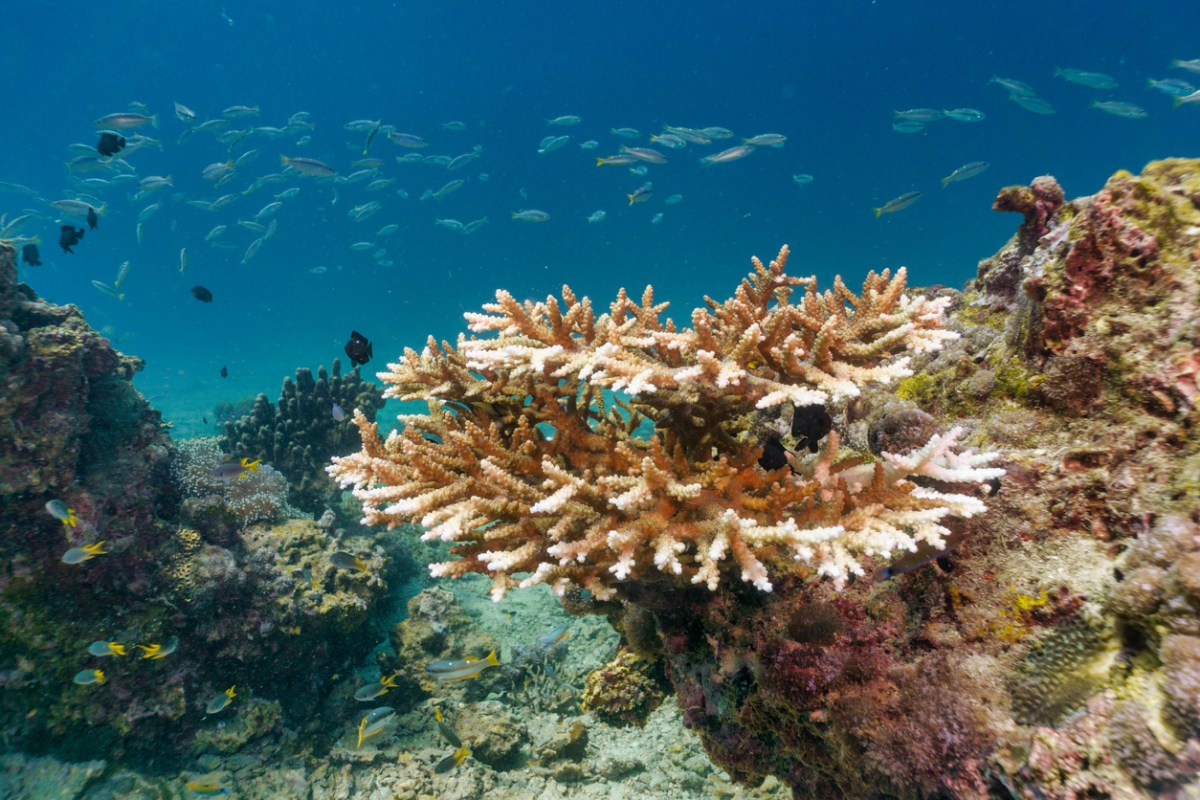A key battleground for the fight against climate change is in our oceans. They absorb around one-third of global C02 emissions and we depend on them for food, but we’re not treating them very well.
The Ocean Impact Organisation was founded by Nick Chiarelli and Tim Silverwood (who you may know as ex-CEO fo Take-3-for-the-Sea). It was created to help support and accelerate the growth of businesses that are founded on positive ocean impact. And this year they’ve announced their second annual Ocean Impact Pitch Fest.
It’s an opportunity for impact startups, whose mission is to drive ocean health, to have their organisation and pitch video showcased to a global audience. Nick Chiarelli explained that their mission is to raise awareness about the breadth of exciting new businesses that are operating in Australia and around the world.
“Pitchfest is really about creating awareness, and uncovering, a lot of these innovators are out there and, and giving them a small level of support through our cash prizes and support packages. The longer term view for us is to deliver cohort based programmes and invest in some sort of seed fund, and hopefully, as the sector evolves, we’re able to provide these folk one to one, investor introductions as well as a fund that could back the cohort.”
They’re brought together a high-calibre group of panelists from diverse backgrounds with the aim of raising the profile of the new breed of ocean-entrepreneurs, and to take the idea of ocean impact to the mainstream.
“The judging panel includes a few investors, there’s a few venture capitalists there, but it’s a multidisciplinary group. There’s people from ocean science, from impact investment, there’s people from other similar type accelerators, and aggregators from overseas that are a few steps ahead of where Australia is. And we’ve done that very deliberately because when it comes to ocean impact, we consider that a broad group of people need to be assessing that impact. It’s not just about the dollars, so we don’t only put investors on there, we want to make sure that any sort of returns need to be generated with impact in mind.” Nick says.
Progress for last year’s winners
The two winners from last year included Planet Protector and Wave Swell Energy.
Planet Protector produces a wool-based packaging product that is recyclable and compostable. It acts as an alternative to polystyrene packaging in online shopping and food deliveries. And it’s great for keeping frozen foods cold.
They’re contributing to less plastics ending up in the ocean, and they’ve generated a huge amount of support since the pitch-fest. They recently completed a equity-crowd-fund campaign on Birchal which raised $1.25 million.
“Planet Protector have gone and got 800 or so new investors now through that crowdfunding campaign, and all of those investors, or a big number of them are now advocates as well, pushing for change. They might take advantage of meal delivery services and see polystyrene turn up at their house, and they’re now motivated to tell that provider there’s other solutions out there.” Nick says.
“So there’s two parts to that for them: one is the mission to tackle polystyrene, and advocacy around distribution, and what governments can do to get behind eliminating it as much as possible from supply chains. The other half of it is about wool, and despite Australia being built on the sheep’s back, we don’t actually have any wool manufacturing in this country. So they’re pushing to get it back.”
Wave Swell Energy is a renewable-energy innovator that has developed a floating device that can generate zero-emissions electricity by harnessing the power of ocean waves. Since last year’s event they’ve installed a prototype device, and refined their product-market-fit.
“The device floats, it looks like one of the small fast ferries on Sydney Harbour, and it’s hollowed out so that waves travel underneath it and flow up through a blowhole mechanism. They towed a unit to King Island, around December last year, and it’s tapped into the grid down there. Essentially, that’s now their value proposition, that these units can be key for small island, nations, and remote regions. They may not be able to power an entire city, but you could power a small community or something specific, like an off offshore aquaculture setup or desalination plants. Essentially, this is a good summary for where people are thinking about ocean energy, and how it can be harnessed.” Nick says.
Technology and Industry Agnostic
Ocean Impact is a not-for-profit organisation, they took that path because they felt they needed to develop a grass-roots foundation of support, before building a commercial enterprise. But it also gives them flexibility, to engage with a broad variety of entrepreneurs, engineers and change-makers, all united by a mission to improve our oceans.
“We asked ourselves, should we focus on one particular problem? And for us, we kept coming back to this idea that we’d be selling the problems short, and that there wasn’t anyone out there really educating the masses on how interconnected the ocean is. We’re all connected to the ocean and the terrestrial land is connected as well. If you focus too much on one problem, then you also take your eyes off the rest of the issues. So we’ve deliberately stayed at the challenge and the opportunity level, focussed on educating people about the breadth of issues, and, to let the market dictate.” Nick says.
“So when I say the market, I mean letting people show us what they want to work on? What problems are they attracted to? What opportunities would they like to work on? And similarly, what are investors most interested in?”
Applications are open for the Ocean Impact Pitchfest until September 21, 2021.

